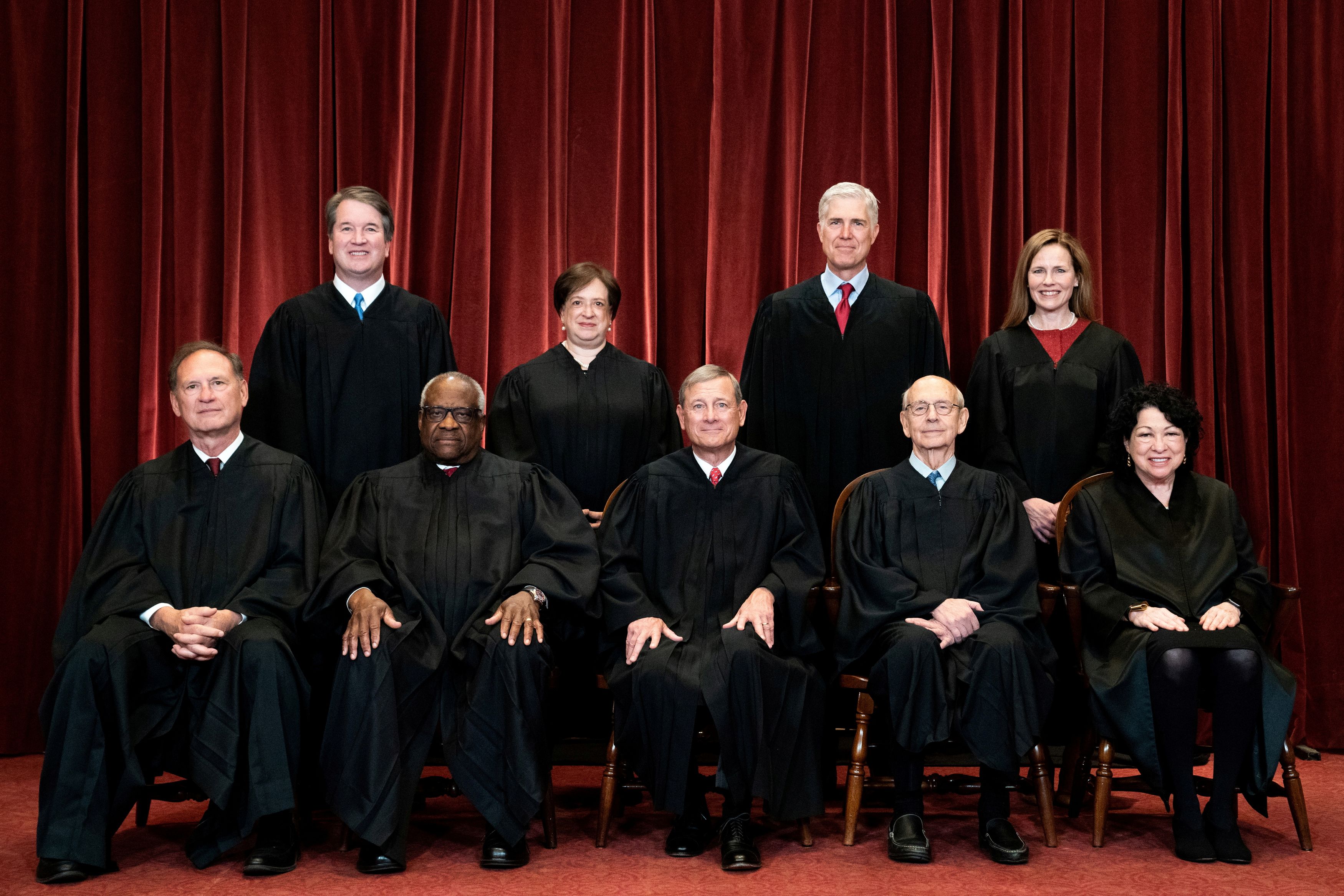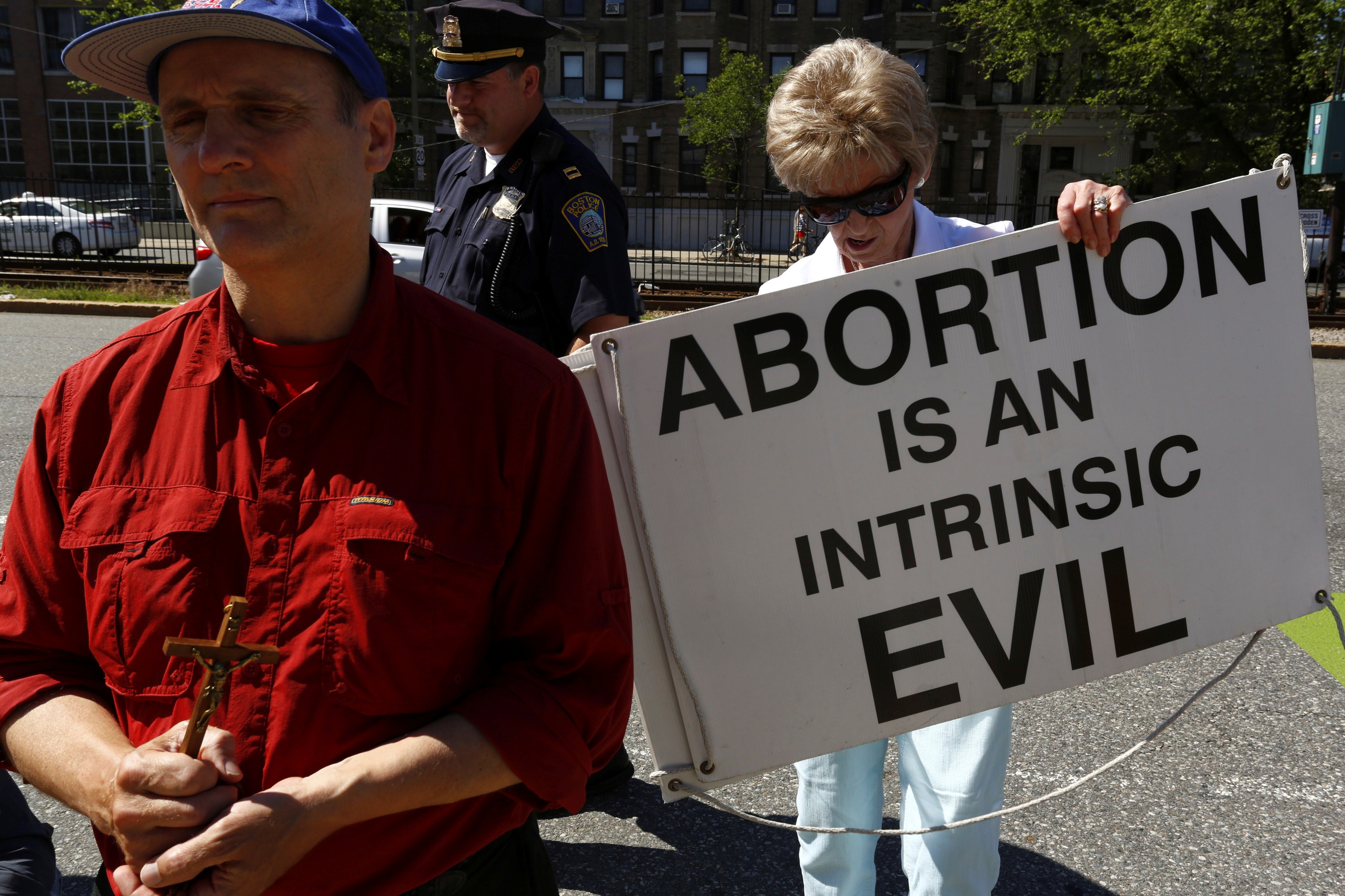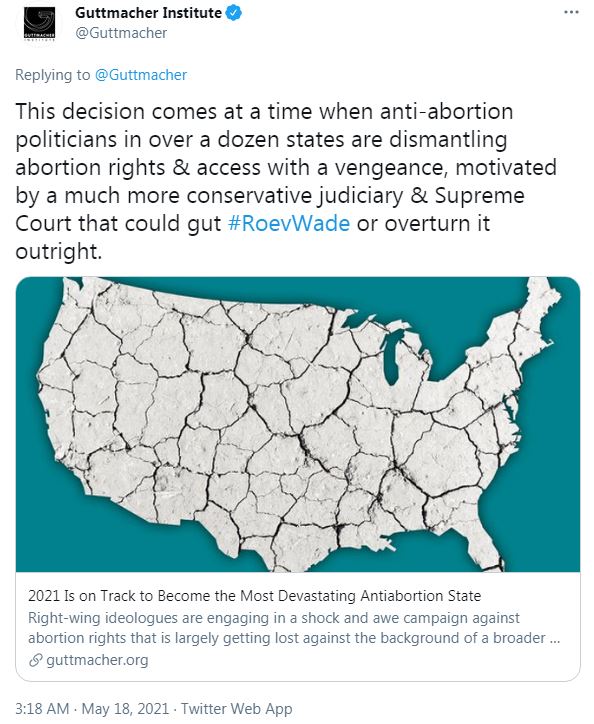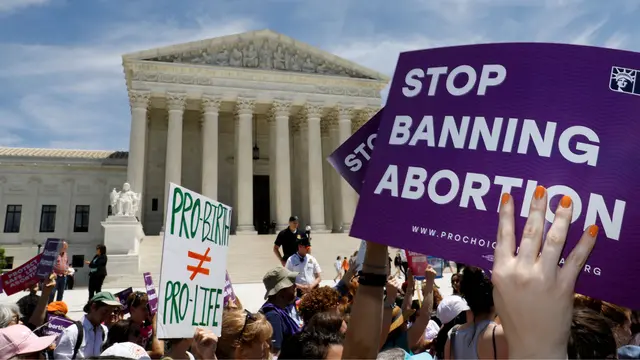
Abortion rights activists rally outside the U.S. Supreme Court in Washington, DC, U.S., May 21, 2019. /Reuters
The U.S. Supreme Court agreed on Monday to hear a case that pro-choice campaigners fear could severely restrict access to abortion and roll back rights secured under the 1973 landmark Roe v. Wade ruling.
The court said it will hear the challenge brought by the state of Mississippi during its next term, which runs from October 2021 to June 2022.
The case is the latest push by anti-abortion activists to overturn a ruling that has protected women's right to abortion nationwide and provided a legal precedent for almost 50 years.
With conservative judges now in the majority on the Supreme Court, the chances are higher than ever that they could succeed.
What is the case about?
Mississippi enacted a law in 2018 that would ban abortions after 15 weeks. This went against Roe v. Wade, which gave women the right to terminate a pregnancy as long as the fetus was not viable on its own, or up to about the sixth month.
The Mississippi law was challenged in lower courts and judges repeatedly ruled against it.
"In an unbroken line dating to Roe v. Wade, the Supreme Court's abortion cases have established (and affirmed, and re-affirmed) a woman's right to choose an abortion before viability," the lower U.S. appellate court wrote in its 2019 decision.

The nine Supreme Court justices pose for a group photo in Washington, DC, U.S., April 23, 2021. Top left to right: Brett Kavanaugh, Elena Kagan, Neil Gorsuch and Amy Coney Barrett. Bottom left to right: Samuel Alito, Clarence Thomas, John Roberts, Stephen Breyer and Sonia Sotomayor. /Reuters
"States mayregulateabortion procedures prior to viability so long as they do not impose an undue burden on the woman's right, but they may not ban abortions. The law at issue is a ban," it found.
Mississippi thus took the matter to the Supreme Court.
Part of a wider effort
The Mississippi law wasn't the first to challenge abortion rights. Despite being a deeply personal decision and private matter, abortion has long been a contentious political issue in the U.S.
Efforts to clamp down on these rights, however, have accelerated over the past few years, especially under former President Donald Trump, who made it a campaign pledge to overturn Roe v. Wade. He also stacked courts at all levels with conservative judges.
Buoyed by this, a number of states were pressed by religious conservative groups to pass stricter abortion laws, hoping to provoke pro-abortion groups to sue and force judges to take up the issue. The ultimate goal was that one case would make it to the Supreme Court and result in the 1973 ruling being restricted or overturned.
The Supreme Court struck down a Louisiana law last June that sought to impose restrictions on doctors performing abortions.
But at least 19-abortion-related cases as of January were "
one step away from the Supreme Court
," according to Planned Parenthood, a non-profit organization dealing with reproductive health care.
Meanwhile,
69 abortion restrictions, including nine bans
, have been enacted in 14 states this year alone, according to the Guttmacher Institute, which specializes in abortion research and policy analysis.

An abortion protester moves her sign out of the street in front of a Planned Parenthood clinic in Boston, Massachusetts, June 28, 2014. /Reuters
This surpassed the 42 restrictions and six bans enacted in 2011, the year previously regarded as the most hostile to abortion rights since 1973, the institute said, describing the new onslaught as "
a shock and awe campaign
against abortion rights."
New restrictions have included everything from bans on abortion after six weeks – also known as "heartbeat bills" – to the closure of abortion clinics, threats of prosecution for doctors and women seeking to terminate a pregnancy, as well as additional procedures and regulations meant to make it harder to get an abortion.
Among the states
"most hostile" to abortion rights
are Mississippi, Louisiana, Missouri, Arkansas, Indiana and South Dakota, according to the Guttmacher Institute.
A 6-3 majority
Amid this new impetus, a momentous change on the Supreme Court has meant abortion defenders are more worried than ever.
Trump nominated – and Congress rushed through the confirmation – of Amy Coney Barrett in late September, a conservative judge and devout Catholic, to replace the liberal Ruth Bader Ginsburg, a long-time supporter of abortion rights who had just passed away.
Coney Barrett was the third justice appointed by Trump after Neil Gorsuch and Brett Kavanaugh, and firmly tilted the Supreme Court to the right ideologically: conservative judges – several with a clear track record of voting against abortion rights – now have a 6-3 majority on the nine-seat court.
The Mississippi case will be the first piece of abortion legislation heard by the Supreme Court under this new setup and pro-choice advocates have already warned the worse could happen.
"Alarm bells are ringing loudly about the threat to reproductive rights," Nancy Northup, president and CEO of the Center for Reproductive Rights, said in a statement.
"Mississippi
passed this law in open defiance
of all Supreme Court precedent going back to Roe v. Wade… and they did it as a test case to try and get the Supreme Court to take it and overturn Roe v. Wade," she added on MSNBC's The Rachel Maddow Show on Tuesday.

Screenshot of a Twitter post by the Guttmacher Institute. /@Guttmacher
The worry is that the Supreme Court's ruling will not just apply to the state of Mississippi but will have repercussions far beyond the state.
"There's no way that the Supreme Court can rule in this case for the state of Mississippi without in fact gutting the core protections of Roe's core holdings," said Northup.
"Make no mistake: the purpose of this any abortion ban is to
snowball into an outright ban
on all abortion at any point in pregnancy for any reason," the Guttmacher Institute tweeted in reaction to Monday's announcement.
Anti-abortion groups on the other hand rejoiced at the news.
"This is
a landmark opportunity
for the Supreme Court to recognise the right of states to protect unborn children from the horrors of painful late-term abortions," Marjorie Dannenfelser, president of the Susan B. Anthony List, said in a statement.
March of Life President Jeanne Mancini added: "States should be allowed to craft laws that are in line with both public opinion on this issue as well as
basic human compassion
, instead of the extreme policy that Roe imposed."
The pro-life push in the courts has happened although a majority of Americans support maintaining Roe v. Wade: a number of polls in September found that
over 60 percent of people
agreed with the 1973 ruling and wanted it upheld, with only 25-30 percent
keen to see it overturned.
Almost one in four women in the U.S. will have an abortion in her lifetime, according to Planned Parenthood.
The Supreme Court is not expected to hear the Mississippi case until the latter half of its next term.
 简体中文
简体中文

